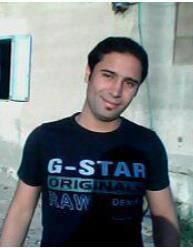Mustafa Ragab Mahmoud
Mustafa Ragab Mahmoud Abdel Fattah, 21, was only 14 years old child when his father a worker at the Suez Cement Company passed away. Mustafa’s father was survived by his family of four girls and his one son, Mustafa, who sat with his mother after his father’s funeral saying “My mother, my father has passed away, I am here. I will provide for our family and will do all that I can to make sure my sisters get the best education possible.”
Mustafa had two older and two younger sisters, he finished elementary school and joined the same company his father used to work as a temporary employee hoping to be granted a fixed job.
One of his sisters said in an interview in 2011 that, “He was working at full capacity to provide all the necessary needs for the family. He was a brother and a father at the same time, we all were both responsible for him and his feelings for us.”
He was close to his sisters despite being busy with work. He knew everything about their lives, their problems with school and within the house. He also took care of his mother who was a dialysis (?) patient, and he knew all the dates of her treatment sessions.
In a newspaper interview, his sisters said that on January 21st he told his mother that he felt something extraordinary would happen in Egypt, and that he might lose his life. His mother scolded him saying, “You are the pillar of this house.”
On Tuesday morning, January 25th, he woke up early even though it was a public holiday. He saw that his sisters were preparing breakfast. He said to his mother, “Get all our food from the fridge. I’m very hungry!” After breakfast, he called his married sister to come over to the family’s home to have lunch with them. After lunch he went to take a nap when friends and some other acquaintances came to asked him to participate in the demonstrations. His mother told them that he was asleep, but he awoke bathed and dressed in his best clothes, preparing himself in front of the mirror.
Mustafa joined his friends at the famous 40th Square in Suez city. When the Central Security Forces started to beat one of his friends he tried to save him, but he was hit by the security guards in his arm. They then threw tear gas at him but, Mustafa and other demonstrators did not stop shouting and calling for freedom. Only moments later, Mustafa became the first martyr of the Egyptian revolution. Security forces shot him with live ammunition, his friends could not find an ambulance to take him to the hospital so they had to take him to the hospital in a pickup truck.
His family was following the events unfold on the TV. A few hours later one security guard came to his home and told the family that Mustafa was “injured” in an accident. His mother and other relatives rushed to the hospital, but Mustafa’s body was already moved to the morgue. When his family arrived at the hospital they were surprised that according to the forensic report the cause of death was from inhaling gas, but the bullet wounds were clearly on his body. The family insisted that doctors write a new forensic report detailing the truth. After this, his body was taken through the back door in a hurry when a security unit started attacking the hospital. Family and friends did a prayer over the body at a nearby mosque, Al Aziz in Al-Janain neighborhood in Amer village. Mustafa was buried in the village next to his father’s grave, under the tight watch of secret security guards.
Mustafa’s mother said in an interview that the death compensation was LE 50,000 pounds from the governorate, but when the check has issued the value was reduced to LE 20,000 pounds.
All Mustafa’s mother wishes for is a fair punishment for the former interior minister of Habib al-Adli and the former president Mohamed Hosni Mubarak.




